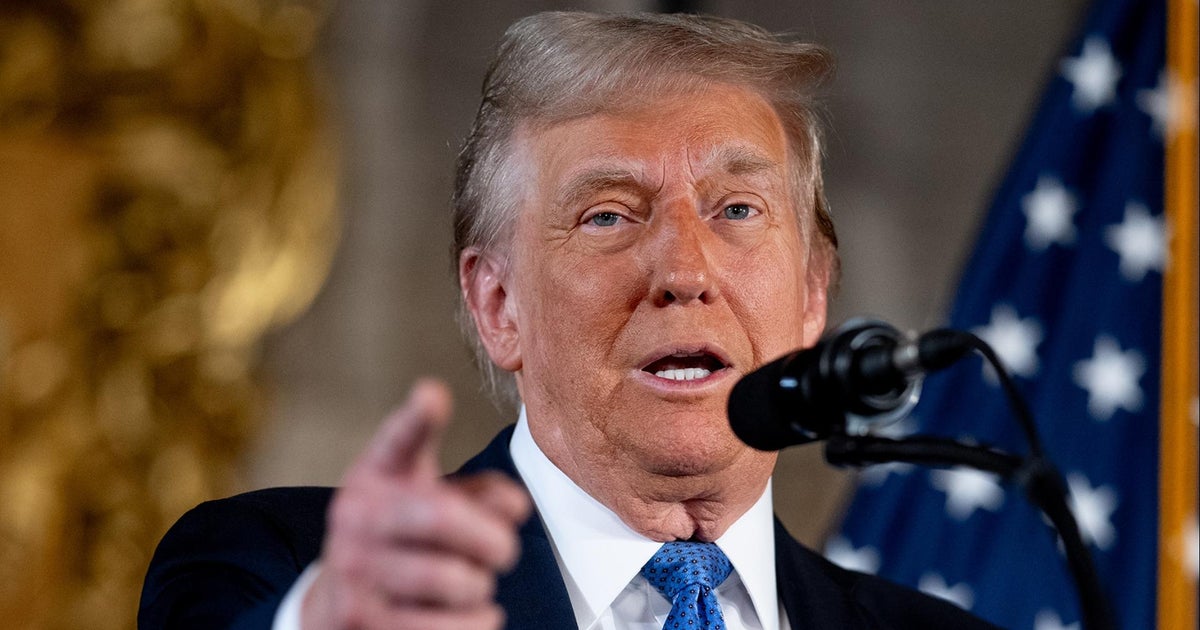U.S. and Mexico fail to reach deal on immigration as tariff deadline nears
Vice President Mike Pence, Secretary of State Mike Pompeo and other top administration officials concluded a meeting at the White House with Mexican officials without reaching a deal to avoid tariffs on Mexican goods that President Trump has threatened to impose if the country doesn't block the flow of migrants illegally entering the U.S.
Mr. Trump, who is traveling overseas, tweeted that "not nearly enough" progress had been made to persuade him not to impose the tariffs, which are set to go into effect June 10.
"Immigration discussions at the White House with representatives of Mexico have ended for the day. Progress is being made, but not nearly enough! Border arrests for May are at 133,000 because of Mexico & the Democrats in Congress refusing to budge on immigration reform," the president wrote, referring to figures released Wednesday showing the number of migrants apprehended at the border in May was the highest it's been in more than a decade.
Mr. Trump said talks will resume on Thursday "with the understanding that, if no agreement is reached, Tariffs at the 5% level will begin on Monday, with monthly increases as per schedule."
In a press conference, Mexican Foreign Minister Marcelo Ebrard said tariffs were not specifically discussed at Wednesday's meeting, which he said was focused on the steps Mexico will take to mitigate the migration problem.
A White House official told CBS News that reaching a deal wasn't the goal for Wednesday's meeting. The meeting lasted roughly 90 minutes, two White House officials said.
The White House has not publicly laid out specific targets Mexico must meet to avoid the tariffs, saying in general terms that Mexico should stem the flow of migrants from Central America and send them back to their home countries.
Mr. Trump announced last week that he will impose 5% tariffs on all goods entering the U.S. from Mexico beginning on June 10 "until such time as illegal migrants coming through Mexico, and into our country, STOP." The tariffs would gradually increase each month, Mr. Trump said, a threat the White House insists is very much real.
Outgoing top economic adviser Kevin Hassett admitted the tariffs would hurt the U.S. economy, but said they would cause far greater harm to the Mexican economy. The U.S. Chamber of Commerce says the tariffs would be detrimental to the U.S. economy.
Peter Navarro, a top trade adviser to the president, told CNN Wednesday the tariffs might not have to take effect, because "we have the Mexicans' attention."
Even Republicans have voiced opposition to the president's proposed tariffs on Mexican goods, with some of them insisting it would overstep presidential authority and damage the strong U.S. economy. Senate Majority Mitch McConnell said many in his caucus won't support the tariffs, but it remains to be seen if Republicans would take legislative action to oppose the president.
Prior to Wednesday's talks, Mexico's foreign minister expressed optimism this week that the tariffs can be averted.
"From Washington I can report that we have made progress during meetings with cabinet members, private think tanks, specialists. We are working hard to reach an understanding. It's doable and desirable. 80/20 chances in favor of doing it," Ebrard said in a tweet translated from Spanish.
CBS News White House correspondent Weijia Jiang contributed to this report.



